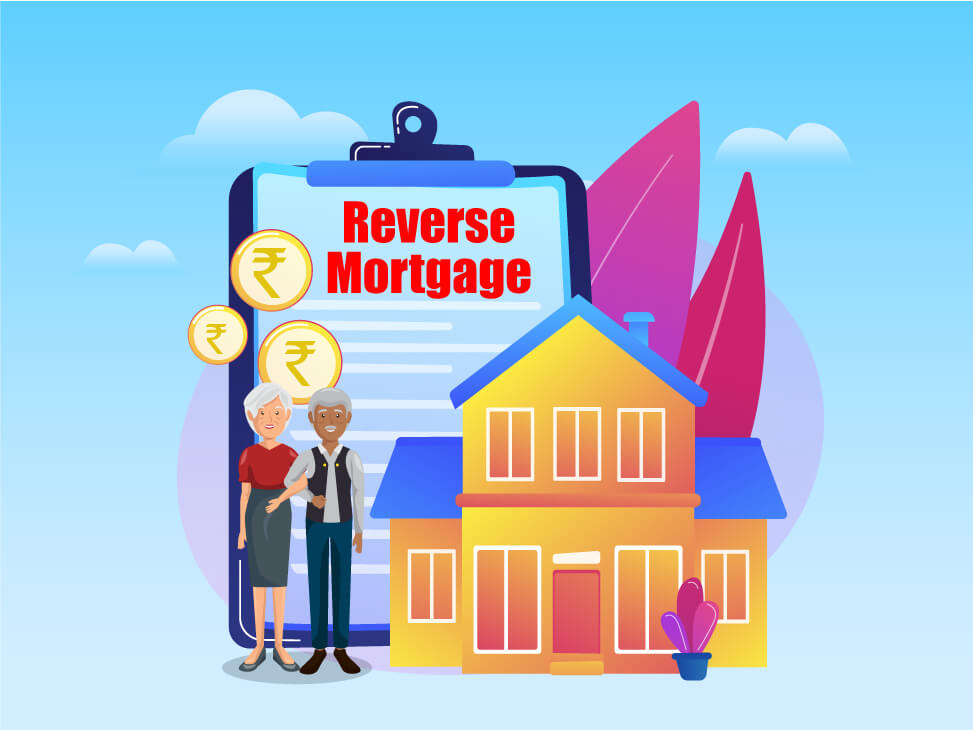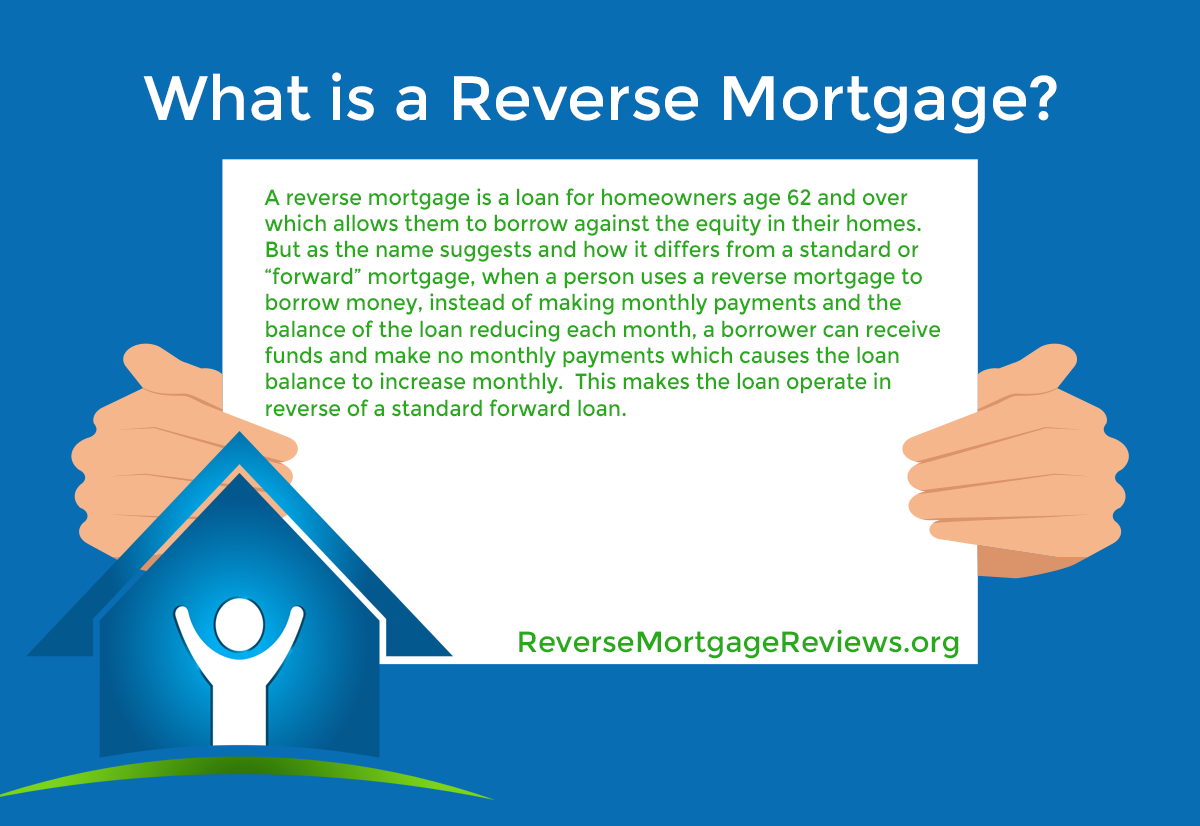Unlock Financial Liberty: Your Guide to Getting a Reverse Mortgage
Understanding the complexities of reverse home loans is vital for house owners aged 62 and older looking for monetary flexibility. As you consider this choice, it is important to comprehend not only how it works but additionally the effects it might have on your monetary future.
What Is a Reverse Home Loan?

The basic appeal of a reverse home loan hinges on its prospective to boost financial versatility throughout retirement. Home owners can utilize the funds for numerous purposes, consisting of clinical expenses, home enhancements, or daily living prices, thus supplying a safeguard during a vital stage of life.
It is necessary to comprehend that while a reverse mortgage allows for enhanced capital, it additionally decreases the equity in the home with time. As rate of interest gathers on the outstanding finance balance, it is important for possible borrowers to thoroughly consider their long-lasting economic strategies. Consulting with a reverse home loan or a monetary advisor specialist can offer useful understandings right into whether this choice straightens with a person's monetary objectives and conditions.
Qualification Needs
Understanding the qualification requirements for a reverse mortgage is vital for property owners considering this financial option. To qualify, candidates need to go to the very least 62 years old, as this age standard enables elders to accessibility home equity without month-to-month home loan repayments. Furthermore, the property owner must inhabit the house as their main house, which can consist of single-family homes, particular condos, and produced homes meeting specific standards.
Equity in the home is an additional necessary demand; homeowners normally need to have a significant quantity of equity, which can be established with an appraisal. The quantity of equity offered will directly affect the reverse home loan quantity. Candidates must show the ability to keep the home, including covering building taxes, home owners insurance coverage, and upkeep expenses, ensuring the building remains in excellent condition.
Furthermore, possible customers need to undergo a monetary analysis to evaluate their earnings, credit report, and overall monetary circumstance. This analysis helps loan providers establish the applicant's ability to satisfy recurring obligations associated with the building. Meeting these requirements is important for safeguarding a reverse home mortgage and ensuring a smooth monetary shift.
Advantages of Reverse Home Mortgages
Various benefits make reverse mortgages an enticing alternative for seniors wanting to enhance their monetary adaptability. purchase reverse mortgage. Among the primary benefits is the ability to convert home equity into cash without the need for monthly mortgage settlements. This attribute permits elders to accessibility funds for numerous needs, such as medical expenditures, home renovations, or daily living prices, consequently relieving economic stress and anxiety
In addition, reverse home mortgages supply a security internet; seniors can remain to stay in their homes for as long as they fulfill the financing needs, promoting stability during retirement. The profits from a reverse mortgage can also be made use of to postpone Social Safety benefits, possibly leading to higher payouts later on.
Moreover, reverse mortgages are non-recourse financings, meaning that consumers will never owe even more than the home's value at the time of sale, protecting them and their successors from monetary responsibility. Last but not least, the funds received from a reverse home mortgage are normally tax-free, adding an additional layer of monetary alleviation. Overall, these advantages position reverse try these out mortgages as a functional solution for senior citizens seeking to enhance their economic circumstance while keeping their cherished home setting.

Expenses and Costs Included
When taking into consideration a reverse mortgage, it's important to be mindful of the various costs and charges that can affect the total monetary image. Understanding these expenses is vital for making an educated choice about whether this financial product is best for you.
One of the main expenses related to a reverse home mortgage is the origination charge, which can differ by lending institution yet usually varies from 0.5% to 2% of the home's evaluated worth. In addition, homeowners should anticipate closing costs, which may consist of title insurance, assessment fees, and credit history record fees, normally totaling up to a number of thousand dollars.
Another significant click here for info expense is home mortgage insurance policy costs (MIP), which secure the lender versus losses. This fee is normally 2% of the home's worth at closing, with a continuous annual costs of 0.5% of the continuing to be financing equilibrium.
Finally, it is essential to consider ongoing prices, such as real estate tax, homeowner's insurance policy, and upkeep, as the customer remains liable for these costs. By carefully reviewing these costs and expenses, homeowners can much better examine the monetary effects of going after a reverse mortgage.
Actions to Get Going
Starting with a reverse mortgage includes numerous essential actions that can assist simplify the process and guarantee you make educated decisions. Initially, assess your monetary scenario Going Here and establish if a reverse mortgage lines up with your lasting goals. This includes assessing your home equity, existing debts, and the necessity for additional earnings.
Following, study numerous lenders and their offerings. Try to find reliable organizations with favorable testimonials, clear cost frameworks, and competitive rate of interest. It's vital to contrast problems and terms to locate the very best suitable for your requirements.
After picking a loan provider, you'll need to complete a comprehensive application process, which typically calls for documentation of income, assets, and residential or commercial property details. Take part in a counseling session with a HUD-approved therapist, that will certainly give understandings right into the ramifications and obligations of a reverse home loan.
Final Thought
In final thought, reverse mortgages offer a practical option for senior citizens seeking to boost their financial security during retired life. By converting home equity right into available funds, home owners aged 62 and older can attend to different financial demands without the pressure of regular monthly repayments.
Comprehending the intricacies of reverse home loans is important for home owners aged 62 and older seeking monetary liberty.A reverse home loan is an economic product created largely for house owners aged 62 and older, allowing them to convert a section of their home equity into money - purchase reverse mortgage. Consulting with a reverse home mortgage or an economic advisor expert can give valuable insights right into whether this alternative aligns with a person's economic goals and situations
Moreover, reverse home mortgages are non-recourse car loans, suggesting that consumers will never owe more than the home's value at the time of sale, securing them and their successors from economic liability. Overall, these benefits setting reverse home loans as a functional remedy for seniors looking for to enhance their economic situation while maintaining their cherished home environment.